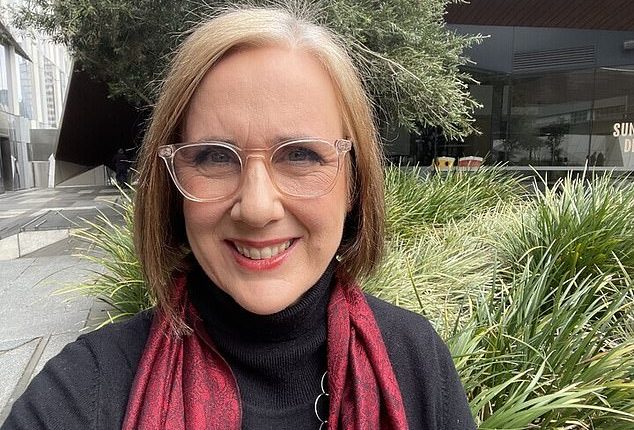A highly skilled digital mentor and consultant has revealed she was passed over for several jobs in favour of someone half her age despite extensive experience in her field.
Independent LinkedIn specialist Sue Ellson, 59, based in Melbourne, found herself subject to age discrimination after being unable to land a single position using an online recruitment platform.
Ms Ellson told Daily Mail Australia she wanted to try out the platform for herself after recommending it to a 29-year-old client looking for temporary work.
‘I was shocked to find that even with my extensive range of skills, both digital and non-digital, that I have not been able to secure even one basic gig,’ she said.
She explained she regularly ‘battle tests’ the recruitment systems she suggests for clients who come to her for advice as a careers consultant.
Ms Ellson suspected age discrimination was at play after being rejected for several jobs, which then in some cases were re-advertised back to her.
She pointed out she has ‘registered with temporary employment agencies in the past’ and secured ‘a lot of different gigs all over Melbourne’.
‘I have digital skills above and beyond what would be needed for these roles,’ she said.

Independent LinkedIn specialist Sue Ellson, 59, found she was unable to land any jobs using an online platform despite possessing ‘digital skills above and beyond what would be needed for these roles’

Ms Ellson warned online recruitment platforms could be discriminating against older employees (stock)
As part of the lengthy recruitment process, Ms Ellson had to provide an ID check, police check and answer several interview questions on video.
She was told her profile would be approved in three business days, but after failing to hear back she contacted them a week later to ask if her account could be deleted because she’s ‘obviously not what they’re looking for’.
Ms Ellson’s account was then suddenly approved with an employability rating of 93 per cent.
‘The main reason I was doing this particular exercise was because it had worked for this 29-year-old and I thought it would be interesting to see if it would work for me,’ she explained.
‘The only reason I can think as to why I haven’t been able to get a gig is because either the platform skewered the result or the client skewered the result and didn’t want someone because of age, because I definitely have the skills.’
She said she’s unsure whether the platform was at fault or if it ‘was doing everything correctly and the client said, “We imagine someone under 30 for this role.”‘
The LinkedIn specialist said the online platform included a few pieces of advice that led her to believe it had a bias favouring younger employees, including a warning to ‘wear an ironed shirt’ for interviews.

Ms Ellson has over 17 years of experience as a LinkedIn specialist and regularly chairs workshops on how employees and employers can get the most out of the social media platform
‘I’m thinking why wouldn’t you iron an shirt? But clearly some applicants turn up with un-ironed clothes and so that indicates they’re interested in a younger person who might not be using an iron.
‘You don’t have to tell me to iron my shirt, I know I should iron my shirt, but the fact you are requesting an ironed shirt and a navy or black suit suggests to me you have a bias there.’
Ms Ellson said she feared the new age of online recruitment agencies and the use of AI will unfairly discriminate against older employees, who are an asset to any company as they will ‘often offer loyalty and reliability’.
The time-consuming and convoluted process of creating a profile on the platform left Ms Ellson concerned that those who are less tech-savvy wouldn’t stand a chance.
‘If you’re an older person and you have to jump through all this nonsense and face these challenges, that’s going to be very difficult for someone,’ she said.
The skills to get a job are becoming increasingly different to the skills required to do the job.
Ms Ellson warned online platforms don’t solely discriminate on age.

Ms Ellson said the online platform warned prospective employees to ‘wear an ironed shirt’ for interviews, which led her to believe it favoured younger users
‘Many of these platforms use a particular language style that may not be familiar to someone with a non-Western background or have English as a second language,’ she said.
‘They may also lack the ability to allow for cultural differences. Some people are overwhelmed by lengthy forms and processes but could be very suitable for the job they are applying for.
‘If all candidates need to go through this formality for consideration, they may miss out.’
In a message to employers, she said: ‘Are we going to let the technology make all the decisions?
‘Or are we going to say what is the need for the enterprise and focus on that?
‘We need to make sure the recruitment and selection process revolves what the enterprise needs and what are the best types of candidates based on skill and cultural fit rather than age, gender or cultural background.’







